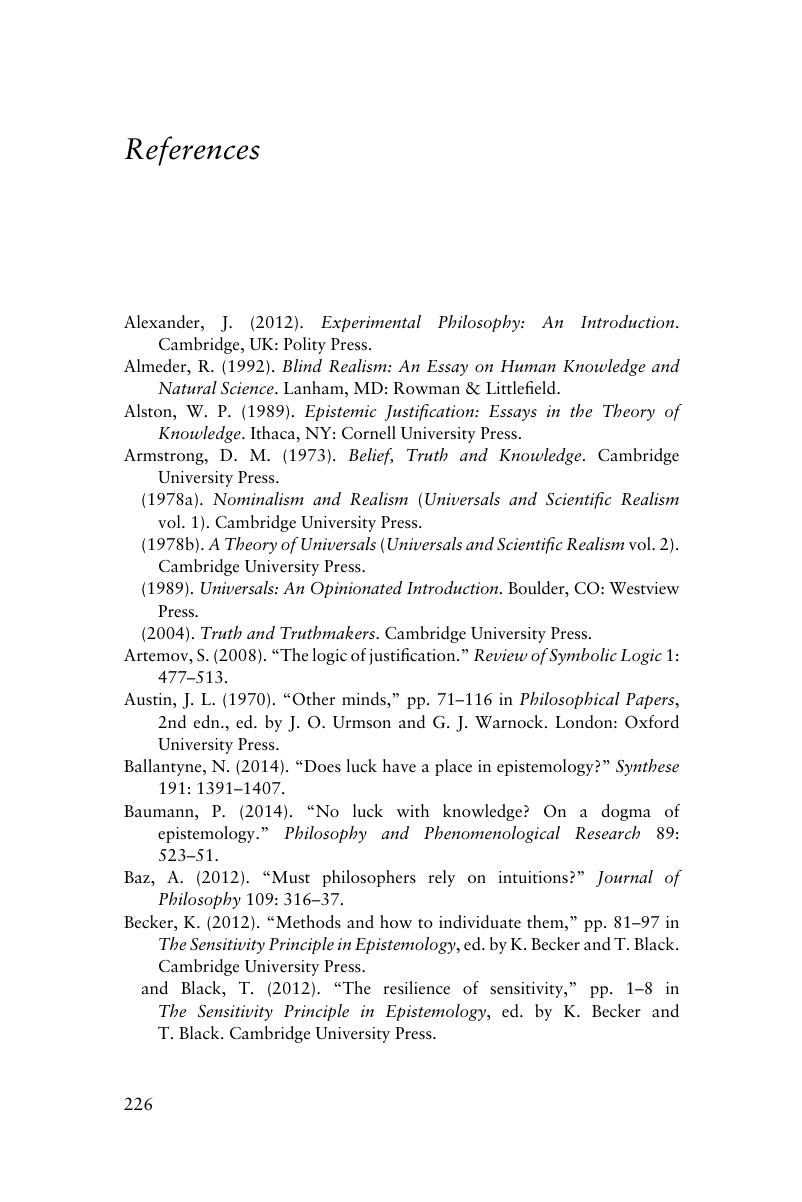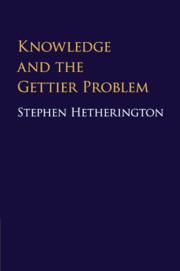Book contents
- Knowledge and the Gettier Problem
- Knowledge and the Gettier Problem
- Copyright page
- Dedication
- Contents
- Preface and Acknowledgements
- 1 Introducing Gettierism
- 2 Explicating Gettierism: A General Challenge
- 3 Explicating Gettierism: A Case Study
- 4 Explicating Gettierism: Modality and Properties
- 5 Explicating Gettierism: Infallibility Presuppositions
- 6 Gettierism and Its Intuitions
- 7 Gettierism Improved
- References
- Index
- References
References
Published online by Cambridge University Press: 05 August 2016
- Knowledge and the Gettier Problem
- Knowledge and the Gettier Problem
- Copyright page
- Dedication
- Contents
- Preface and Acknowledgements
- 1 Introducing Gettierism
- 2 Explicating Gettierism: A General Challenge
- 3 Explicating Gettierism: A Case Study
- 4 Explicating Gettierism: Modality and Properties
- 5 Explicating Gettierism: Infallibility Presuppositions
- 6 Gettierism and Its Intuitions
- 7 Gettierism Improved
- References
- Index
- References
Summary

Information
- Type
- Chapter
- Information
- Knowledge and the Gettier Problem , pp. 226 - 236Publisher: Cambridge University PressPrint publication year: 2016
